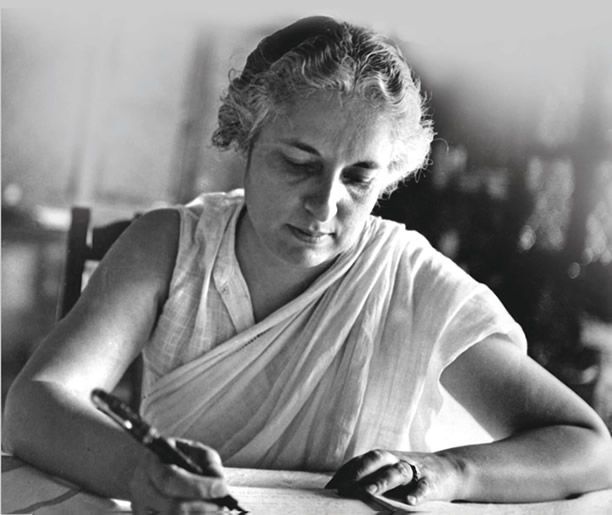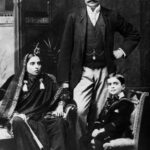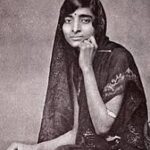Krishna Hutheesing: 7 Incredible Facts About the Inspiring Life of a Literary Legend
Krishna Hutheesing was a remarkable figure in India’s literary and cultural history. Known for her poignant writing, she made significant contributions to Indian literature and journalism. Her life was one of resilience, creativity, and determination. Krishna Hutheesing’s works focused on the intersections of culture, politics, and human emotions. Her commitment to expressing her thoughts in writing and to advocating for change made her an unforgettable name in Indian literature. She is especially remembered for her works in the English language and her significant role in shaping public discourse.
Early Life and Background
Krishna Hutheesing was born in 1915 into a prominent family in India. Her early years were marked by a mix of privilege and a growing awareness of the inequalities and social issues around her. Her family’s background was steeped in education and public service, and this environment nurtured her interest in literature and journalism.
Krishna was highly influenced by her family’s deep involvement in social and political causes. Her uncle, V. K. Krishna Menon, was a key figure in Indian politics and diplomacy, and her family was aligned with leaders of the Indian independence movement. This early exposure to leadership and social causes played a vital role in shaping her values and worldview.
Her education was progressive for the time, and she developed a love for reading and writing early on. Krishna Hutheesing’s sense of social responsibility was something she took very seriously throughout her life. She was particularly passionate about promoting education and addressing issues of women’s rights.
Literary Contributions
Krishna Hutheesing’s writing was multifaceted, touching on numerous aspects of society and culture. She was an author, novelist, and journalist. Her literary works often explored the complexities of human relationships, the struggles of women in society, and the rich tapestry of Indian culture.
Her most famous work, “The Sun Behind the Cloud”, a biography of her brother-in-law, Jawaharlal Nehru, sheds light on his life and legacy. The book was an intimate and emotional account of the first Prime Minister of India, and it brought Krishna Hutheesing into the spotlight of Indian literature. Through this work, she offered readers a personal and empathetic view of Nehru’s struggles, his leadership, and the Indian independence movement.
Beyond biographical works, Hutheesing wrote extensively about the cultural changes taking place in India after independence. Her work was particularly significant in illustrating the role of women in a rapidly changing society. Her keen eye for detail, coupled with her thoughtful commentary on political and social issues, made her a standout in the literary community.
Impact on Daily Life and Society
Krishna Hutheesing’s impact on daily life and society was profound. As a writer and social commentator, her works opened up new perspectives on the challenges that Indian society faced during a period of great transformation.
- Women’s Empowerment: A firm believer in the empowerment of women, Hutheesing wrote about the societal pressures that confined women to traditional roles. Her literary work served as a voice for women who felt silenced and marginalized. By bringing their struggles to light, she played a role in initiating discourse about women’s rights and opportunities in India.
- Humanizing History: Krishna Hutheesing had a unique way of humanizing historical figures and events. Whether it was her biography of Jawaharlal Nehru or her other works, she painted a vivid picture of the emotional and personal dimensions of history. This made history more relatable to ordinary people, helping readers connect with the past in ways they never had before.
- Championing Education: Hutheesing was an advocate for education, particularly for girls. She believed that education was the key to unlocking potential and driving social change. In her own life, she exemplified the value of learning and writing, using her intellectual ability to raise awareness and challenge societal norms.
Significance of Krishna Hutheesing in Today’s Context
Krishna Hutheesing’s work continues to have significance in contemporary society. In a world where women’s voices are still often overlooked and historical narratives are dominated by male perspectives, her contributions are indispensable. Here’s why she remains relevant today:
- Empowering Voices: In today’s world, where there’s a greater push for diversity and inclusion, Hutheesing’s focus on empowering marginalized voices is still crucial. Her writings continue to inspire individuals to tell their stories and to challenge dominant narratives.
- Advocacy for Social Justice: Hutheesing’s advocacy for social change, particularly for women’s rights and gender equality, resonates with today’s social justice movements. Her work laid a foundation for more comprehensive discussions on equality and justice.
- Literary Legacy: Krishna Hutheesing’s literary contributions to Indian literature are still studied and cherished. Her writing not only captures a unique historical moment in India but also serves as a model for aspiring writers and social activists.
Frequently Asked Questions (FAQs)
Q1: What was Krishna Hutheesing’s most famous book? Krishna Hutheesing’s most famous book is “The Sun Behind the Cloud”, a biography of her brother-in-law, Jawaharlal Nehru. This work offered an intimate portrait of Nehru’s life and contributions to Indian society.
Q2: How did Krishna Hutheesing contribute to women’s empowerment? Krishna Hutheesing was an advocate for women’s education and empowerment. Through her writing, she highlighted the struggles of women in India and challenged societal norms. Her work played a key role in initiating discussions about women’s roles in society and their right to education and equality.
Q3: How did Hutheesing humanize historical figures? Hutheesing humanized historical figures by focusing on their personal lives, struggles, and emotions. Her biography of Jawaharlal Nehru, for example, went beyond his political accomplishments and explored the inner workings of his life, making him more relatable to readers.
Conclusion
Krishna Hutheesing’s legacy is one of intellectual rigor, compassion, and social advocacy. She used her writing as a tool for social change, empowering women, advocating for education, and humanizing history. Her works remain a valuable part of Indian literature, offering insights into the country’s cultural transformation and the personal lives of its leaders.
Her life and work remind us of the profound impact one person can have on society through dedication to social causes, education, and the power of the pen. Krishna Hutheesing’s contributions will continue to inspire readers and activists alike, guiding future generations toward greater equality and social justice.










